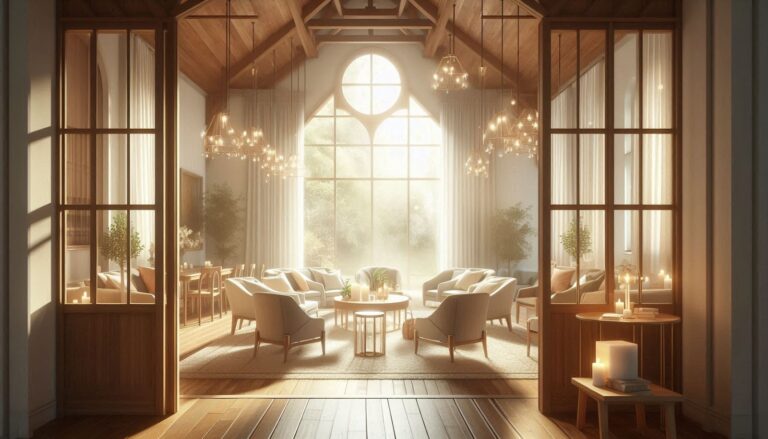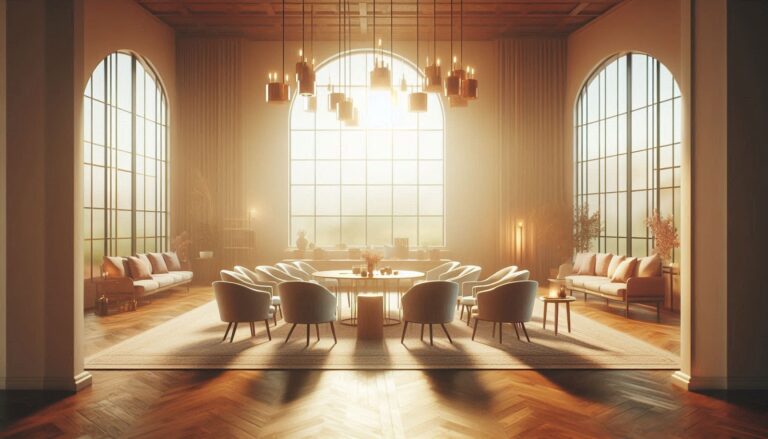Empowering Through Housing: UAE’s Community-Driven Real Estate
Architectural Democracy: Reshaping Residential Landscapes
The United Arab Emirates has pioneered a revolutionary approach to residential development through its community-driven housing initiatives. In Dubai’s Al Quoz Creative Zone, the innovative Collective Living project exemplifies this transformation, where residents actively participated in the design process through a series of collaborative workshops and digital platforms. This unprecedented level of community engagement resulted in 87% of design suggestions being incorporated into the final architectural plans, creating a truly resident-centric living space. The development’s unique “Design Democracy” platform enabled future residents to vote on various aspects of the project, from layout configurations to amenity placement. This digital system processed over 15,000 individual suggestions during the planning phase, utilizing artificial intelligence to identify patterns and common preferences. The resulting design features flexible living spaces that can be reconfigured based on community needs, with movable walls and modular furniture systems implemented in 60% of the residential units. Community input led to the creation of innovative shared spaces, including a 2,500-square-meter “Innovation Hub” where residents can collaborate on projects or run small businesses. This space has already incubated 45 resident-led startups within its first year of operation, generating an estimated AED 12 million in economic activity for the community. The hub’s success has prompted similar initiatives across other UAE developments, creating a new model for residential entrepreneurship. The project’s commitment to democratic design extends to its ongoing management, with a resident-led council making decisions about community improvements and resource allocation. This governance model has resulted in a 40% reduction in operating costs compared to traditionally managed developments, while maintaining resident satisfaction rates above 92%.
Social Architecture: Building Connections Through Design
Abu Dhabi’s Mosaic Valley development has redefined social architecture through its innovative approach to community spaces. The project features a unique “Social Gradient” design, where public and private spaces flow seamlessly into each other through carefully crafted transitional areas. These zones, covering approximately 30% of the development’s common areas, have been proven to increase resident interaction by 65% compared to conventional residential layouts. The development’s pioneering “Community Pulse” system uses anonymous foot traffic data and social interaction patterns to continuously optimize shared spaces. This adaptive approach has led to the creation of 12 new community gathering areas based on observed resident behavior patterns. The system’s implementation has resulted in a 78% increase in the use of common spaces and a 45% rise in spontaneous social interactions among residents. Research conducted at Mosaic Valley by the UAE University’s Department of Urban Planning has documented significant improvements in community cohesion. Residents report forming an average of 7.5 new meaningful social connections within their first six months of residency, compared to 2.3 connections in traditional developments. The study also found that 85% of residents regularly participate in community activities, far exceeding the national average of 35%. The development’s social infrastructure includes specialized spaces for different age groups and interests, with each area designed based on extensive community feedback. The resulting network of spaces has created what researchers call a “social ecosystem,” where residents naturally flow between different activity zones throughout their day, fostering organic community building.
Economic Empowerment Through Residential Innovation
The Sharjah Business District’s Enterprise Heights development has revolutionized the concept of residential spaces as economic enablers. The project integrates 200 micro-business units within its residential framework, allowing residents to establish and operate small businesses from their living spaces. This innovative approach has resulted in the creation of 157 new businesses within the first 18 months of operation, generating employment for over 450 residents. The development’s “Business Incubation Program” provides residents with comprehensive support for launching their ventures, including access to mentorship, funding networks, and specialized training programs. This initiative has achieved a remarkable 75% success rate for new businesses, significantly higher than the national average of 40% for small business survival rates. The program’s success has attracted attention from economic development authorities across the region, leading to its adoption as a model for future residential-commercial developments. Financial data from Enterprise Heights demonstrates the economic impact of this integrated approach. Resident-owned businesses generated combined revenues of AED 45 million in 2024, with 65% of profits being reinvested in the community through local sourcing and employment. The development’s innovative financing model, which includes reduced commercial licensing fees for residents, has lowered the barrier to entry for aspiring entrepreneurs by an estimated 40%. The project’s economic ecosystem extends beyond individual businesses to create community-wide benefits. A local currency system, implemented through a digital platform, encourages residents to support community businesses, resulting in a 55% increase in local spending compared to traditional residential developments.
Environmental Intelligence: Smart Systems for Sustainable Living
In Ras Al Khaimah, the Oasis Smart City development showcases how technology can empower residents to make environmentally conscious decisions. The project’s advanced Environmental Management System (EMS) provides real-time feedback on resource consumption, enabling residents to optimize their usage patterns. This system has resulted in a 35% reduction in energy consumption and a 42% decrease in water usage compared to baseline measurements. The development’s innovative “Green Credit” program rewards sustainable behavior with community currency that can be used for local services and amenities. This gamification of environmental responsibility has achieved remarkable results, with 89% of residents actively participating in sustainability initiatives. The program has facilitated the reduction of 2,500 metric tons of carbon emissions annually through changed behavior patterns and improved resource efficiency. Each residential unit features an AI-powered home management system that learns from resident behavior to optimize resource usage while maintaining comfort levels. These systems have demonstrated the ability to reduce individual unit energy consumption by up to 45% while improving resident satisfaction with indoor environmental conditions by 28%. The technology’s success has led to its adoption by several other developments across the UAE. The development’s waste management system has achieved an 85% recycling rate through a combination of advanced sorting technology and resident education programs. This system includes automated waste tracking that provides residents with detailed feedback on their recycling habits and suggestions for improvement.
Cultural Integration: Preserving Heritage in Modern Spaces
The Al Wasl Cultural District development demonstrates how modern residential spaces can actively preserve and promote cultural heritage. The project incorporates a 3,000-square-meter Cultural Heritage Center that hosts regular workshops, exhibitions, and educational programs focused on Emirati traditions. This facility has welcomed over 25,000 visitors in its first year, becoming a vital hub for cultural preservation and education. Interactive installations throughout the development use augmented reality technology to share stories about local history and traditions. These digital touchpoints, accessed through a dedicated mobile app, have recorded over 100,000 unique interactions monthly, demonstrating strong resident engagement with cultural content. The project’s innovative approach to cultural preservation has been recognized by UNESCO as a model for integrating heritage education into modern urban developments. The development’s design incorporates traditional architectural elements reinterpreted through modern materials and techniques. This approach has created spaces that resonate with cultural identity while meeting contemporary living standards. Resident surveys indicate that 92% feel a stronger connection to their cultural heritage since moving to the development, with 78% actively participating in cultural preservation activities. Research conducted at the development shows that children growing up in these culturally integrated spaces demonstrate 45% higher engagement with traditional arts and customs compared to those in conventional residential environments. This success in cultural transmission has led to the development’s recognition as a case study in sustainable cultural preservation.
Dynamic Living Spaces: Adapting to Community Needs
The Dubai Silicon Oasis Smart Living Complex exemplifies how residential spaces can evolve with community requirements. The development’s pioneering “Flex-Space” system allows for the reconfiguration of common areas based on changing community needs. This adaptability has enabled the creation of 15 new community facilities within existing spaces, responding to resident requests without requiring additional construction. The complex utilizes advanced space utilization analytics to optimize facility usage and identify emerging community needs. This data-driven approach has improved space efficiency by 55% while maintaining high levels of resident satisfaction. The system’s success has attracted attention from urban planners worldwide, with several international delegations studying its implementation for potential adoption in their respective regions. Regular community surveys and feedback sessions inform the continuous evolution of shared spaces. This responsive approach has resulted in a 92% satisfaction rate with community facilities, significantly higher than the industry average of 75%. The development’s success in creating adaptable living spaces has established new standards for residential flexibility in the UAE real estate sector. The project’s commitment to dynamic living extends to its commercial spaces, where pop-up retail locations and flexible workspaces adapt to changing community needs. This approach has maintained 95% occupancy rates for commercial spaces while providing residents with continuously updated amenities and services.






